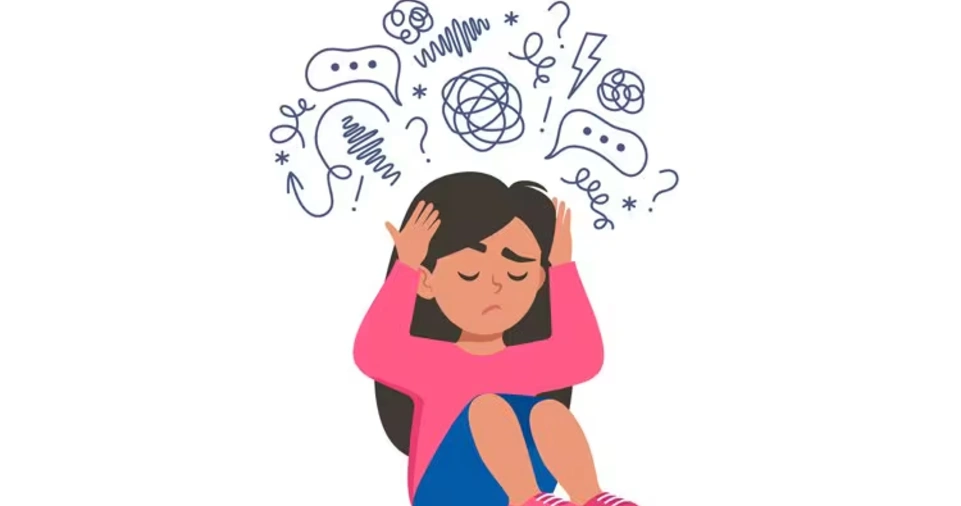Stress and anxiety have become an inevitable part of modern life. The fast-paced lifestyle, constant digital connectivity, work pressures, and personal responsibilities often leave individuals feeling overwhelmed.
While occasional stress is normal, chronic stress and anxiety can negatively impact both physical and mental well-being.
Many people turn to medication for relief, but there are numerous natural ways to reduce stress and anxiety without relying on pharmaceutical solutions.
By adopting healthy lifestyle habits, incorporating mindfulness techniques, and making conscious choices, you can significantly reduce stress and anxiety levels.
Natural remedies focus on improving overall well-being, enhancing relaxation, and promoting emotional resilience.
In this article, we will explore detailed and effective natural methods to reduce stress and anxiety.
These techniques range from breathing exercises and meditation to dietary changes, sleep improvements, and social interactions.
Implementing these strategies can help you lead a balanced, peaceful, and fulfilling life.
Practice Deep Breathing and Meditation
How Deep Breathing Helps Reduce Stress
Deep breathing exercises are one of the most effective ways to calm the nervous system and reduce stress levels.
When you take slow, deep breaths, your body signals your brain to relax, lowering heart rate and blood pressure.
This process counters the body’s “fight or flight” response, which is often triggered during stressful situations.
Deep Breathing Techniques
- 4-7-8 Breathing: Inhale for 4 seconds, hold for 7 seconds, and exhale for 8 seconds. Repeat this cycle 4-5 times to induce relaxation.
- Diaphragmatic Breathing: Breathe deeply into your diaphragm rather than your chest, allowing your belly to expand as you inhale and contract as you exhale.
- Box Breathing: Inhale for 4 seconds, hold for 4 seconds, exhale for 4 seconds, and hold for 4 seconds again before repeating.
Benefits of Meditation
Meditation is a powerful practice that helps cultivate mindfulness and inner peace. It trains the brain to focus on the present moment, reducing the impact of negative thoughts and stressors.
Research has shown that regular meditation can lower cortisol levels (the stress hormone), enhance emotional regulation, and improve overall mental well-being.
Types of Meditation for Stress Relief
- Mindfulness Meditation: Focus on your breath, bodily sensations, or a specific thought while acknowledging passing thoughts without judgment.
- Guided Meditation: Use apps like Calm or Headspace to follow voice-guided meditation sessions.
- Loving-Kindness Meditation: Send positive thoughts and love to yourself and others to foster emotional well-being and reduce stress.
Exercise Regularly

The Connection Between Physical Activity and Mental Health
Exercise is not just for physical fitness—it plays a crucial role in reducing stress and anxiety.
Engaging in physical activity releases endorphins, the body’s natural “feel-good” hormones, which elevate mood and reduce stress hormones like cortisol and adrenaline.
Best Exercises for Stress and Anxiety Relief
- Yoga: Combines physical movement, breath control, and meditation to enhance relaxation.
- Cardio Workouts: Running, swimming, and cycling boost endorphin levels and reduce mental tension.
- Strength Training: Weight lifting or resistance exercises improve mood and resilience against stress.
- Outdoor Activities: Walking in nature, hiking, or gardening provide a refreshing escape from daily stressors.
How to Make Exercise a Habit
- Set realistic goals and start with short workout sessions.
- Choose activities you enjoy to stay motivated.
- Exercise with a friend or join a fitness class for accountability.
- Incorporate movement into daily life, such as taking the stairs or walking during breaks.
Get Enough Sleep
The Importance of Quality Sleep
Sleep is essential for overall health and plays a vital role in managing stress and anxiety.
Lack of sleep can exacerbate stress levels, impair cognitive function, and increase emotional instability.
During deep sleep, the body repairs itself, restores energy levels, and balances stress-related hormones.
Tips for Better Sleep
- Create a Bedtime Routine: Establish a relaxing pre-sleep ritual, such as reading a book or taking a warm bath.
- Limit Screen Time: Reduce exposure to blue light from phones, tablets, and computers at least one hour before bedtime.
- Maintain a Consistent Sleep Schedule: Go to bed and wake up at the same time every day, even on weekends.
- Optimize Your Sleep Environment: Keep your bedroom dark, cool, and quiet for restful sleep.
Eat a Healthy Diet
Foods That Reduce Stress and Anxiety
Nutrition plays a significant role in mental well-being. A balanced diet rich in whole foods can help regulate mood, energy levels, and stress hormones.
Best Foods for Stress Reduction
- Leafy Greens: Rich in magnesium, which helps regulate the nervous system.
- Fatty Fish: Omega-3 fatty acids in salmon and sardines improve brain function and reduce anxiety.
- Nuts and Seeds: Almonds, walnuts, and flaxseeds provide healthy fats and antioxidants.
- Dark Chocolate: Contains flavonoids that boost mood and lower stress levels.
Foods to Avoid
- Caffeine: Excessive intake can cause jitters and anxiety.
- Processed Sugars: Leads to energy crashes and mood swings.
- Alcohol: Interferes with sleep and emotional stability.
Engage in Relaxing Activities

Hobbies and Creative Outlets
Engaging in activities that bring joy and relaxation can help alleviate stress and anxiety.
Creative pursuits help shift focus away from worries and provide a sense of accomplishment.
Recommended Activities
- Listening to Music: Soothing melodies or nature sounds have calming effects.
- Reading Books: Fictional escapism or self-help books can be therapeutic.
- Art and Craft: Painting, drawing, or DIY projects enhance creativity and reduce stress.
- Journaling: Writing down thoughts and emotions provides clarity and relief.
Connect with Loved Ones
The Power of Social Support
Humans are social beings, and meaningful connections with family and friends can act as a buffer against stress.
Talking about concerns and sharing emotions with a trusted person can offer comfort and perspective.
Ways to Strengthen Social Connections
- Schedule regular meet-ups or video calls with loved ones.
- Join social groups, hobby clubs, or community activities.
- Volunteer for a cause to build connections and gain fulfillment.
ALSO READ: How to Stay Updated on the Latest Investment Trends
Conclusion
Reducing stress and anxiety naturally is possible by making small yet impactful lifestyle changes.
Incorporating deep breathing, meditation, regular exercise, quality sleep, healthy eating, and social interactions can significantly improve mental well-being.
Additionally, engaging in hobbies, limiting digital distractions, and practicing gratitude contribute to a balanced and stress-free life.
Instead of relying on medication, adopting these natural techniques allows you to develop resilience against stress and lead a healthier, more fulfilling life.
Start implementing these strategies today and experience the profound difference in your overall well-being!







